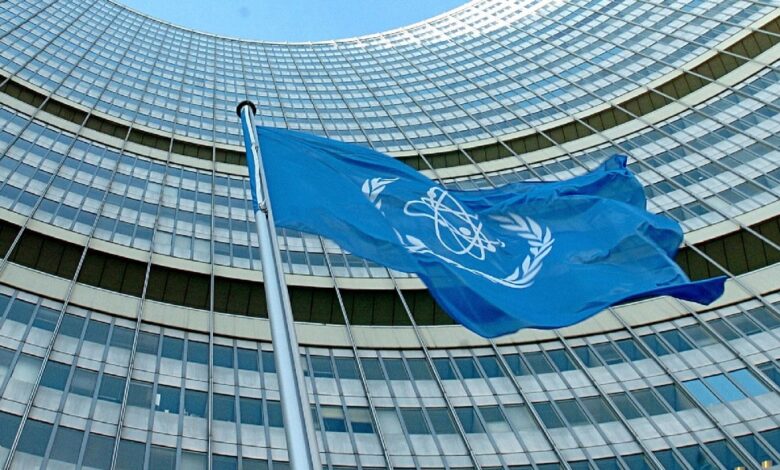Understanding ‘September Document,’ Tehran’s Latest Diplomatic Maneuver

Written by
Mahmoud Hakamian
Maryam Rajavi: The Mullahs’ Regime Has Never Stopped the Project of Acquiring an Atomic Bomb and Continues Its Deception
After months of feet dragging and many crafty theatrics like making a taboo of directly renegotiating the 2015 nuclear deal with the United States, Hossein Amir-Abdollahian, the Iranian regime’s Foreign Minister, emphasized the significance of the so-called “September Document.” Given the fruitless years of nuclear talks with the stubborn clerics in Tehran, there is a serious question regarding the seriousness of these negotiations and how it will be different this time.
Following recent informal agreements between the Iranian regime and the United States, addressing the release of hostages and the unlocking of Iranian funds in Iraq and South Korea, the clerical regime wants to show it has opted to resurrect the nuclear talks, which have been stuck in limbo since the summer of 2022.
As part of this initiative, the regime apparently reduced its enriched uranium stockpile to 3,795.5 kilograms in August, down 949 kilograms compared to July. This was done in conjunction with the International Atomic Energy Agency (IAEA) preparing for its upcoming Board of Governors session.
The regime’s objective in reducing its uranium stockpile is to prevent the IAEA from issuing a negative report to the Board of Governors and to prevent the adoption of any resolutions on this matter. Especially since, in the coming month of October, certain provisions of the JCPOA, including some sunset clauses and missile-related sanctions, are set to expire. Hence, Tehran intends to prevent the renewal of sanctions or the imposition of new ones.
As such, the clerical regime has sought to reach an agreement with the United States, the main player in these negotiations, hoping to secure a deal beyond the JCPOA framework. Despite publicly dismissing direct negotiations with the U.S., the regime’s Supreme Leader Ali Khamenei has initiated discussions through intermediaries such as Qatar and Oman when necessary.
Iran Regime’s New Deception: No Preconditions for Nuclear Talks #Iran #JCPOA #ProsecuteRaisiNOW https://t.co/Z6Y6meLRID
— NCRI-FAC (@iran_policy) October 7, 2021
Among the recent moves has been the announcement by FM Amir-Abdollahian, who stated that the “September Document” plays a central role in Iran’s negotiations. This document specifically pertains to the ultimate draft of the agreement, which was presented last summer by Joseph Borrell, the High Representative of the European Union, as the final diplomatic initiative of that period.
Nonetheless, Khamenei’s objective was to obtain assurances from the Biden administration, assuring that Washington won’t withdraw from it. Achieving this is extremely puzzling within the framework of the U.S. governance system, as no administration can dictate terms for its successors, let alone the congressional resistance.
The Republicans, who are generally unsupportive of such assurances, hold a majority in the U.S. House of Representatives, and with even some Democrats expressing opposition, Khamenei faces an almost insurmountable challenge in this regard. Consequently, the September Document stands as an unviable option for Khamenei to pursue.
Furthermore, the regime’s ultimate demand is the complete lifting of U.S. sanctions, a goal that seems highly unattainable, especially considering the slim chance of the Biden administration moving in that direction. Absent any tangible concessions from Washington that the mullahs can compel their domestic audiences with, the fate of the September Document seems poised to echo that of previous initiatives.
What’s even more significant than the revelation of these political stunts are the conclusions that can be drawn from them. Following the 2022 uprisings, the clerical regime has been actively striving to showcase stability through various domestic and international maneuvers, aiming to impress its low-morale follower base while deceiving adversaries. However, the regime’s fundamental weaknesses and the ineffectiveness of these diplomatic spectacles don’t even mislead the regime’s insiders. This fact has become quite evident, as former officials and state-controlled media have gone the extra length to expose them.
The state-run Entekhab website was shut down after it published a critical video about Ebrahim Raisi’s foreign policy. Among many things, the controversial video stated, “The achievements of the Raisi administration can be summarized as the issuance of three resolutions by the International Atomic Energy Agency, Iran’s expulsion from the UN Commission on the Status of Women, a resolution by the United Nations Human Rights Council, and the European Union’s human rights sanctions resolution.”
While Western powers zealously pursue the talks to resurrect the 2015 nuclear deal with #Tehran, reports indicate the clerical regime’s rapid approach to enrich weapon-grade uranium, which is in line with its provocative #nuclear activities.https://t.co/7WWsWQc3Ky
— NCRI-FAC (@iran_policy) March 2, 2023
In another part of the same video, it was pointed out, “What matters for assessment are the outcomes of the government’s actions, not the grandiose slogans being promoted… Amir-Abdollahian considered his three-day trip to Pakistan as very successful, but less than a week after his visit, Pakistan cut off gas imports from Iran.”
Following Entekhab’s shutdown, Mohammad Mohajeri, a member of the editorial board of the Khabar Online website, wrote, “Mr. Raisi’s government still wants to revive the JCPOA, but it cannot. It’s not that it doesn’t want to; rather, it lacks the merit. The Entekhab news website criticized the government’s foreign policy, and the government, unable to tolerate it, decided to shut it down. Why? Because they said the taste of the SCO and BRICS lollypops were so unappetizing that no one likes it.”

